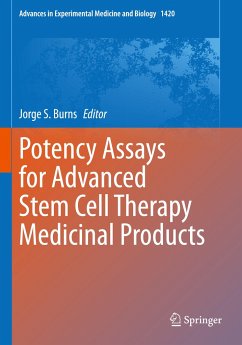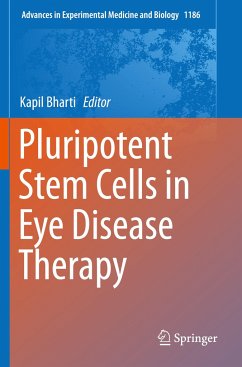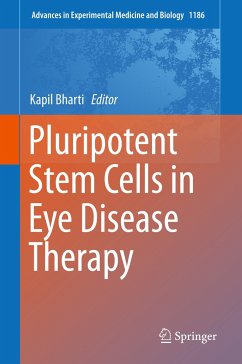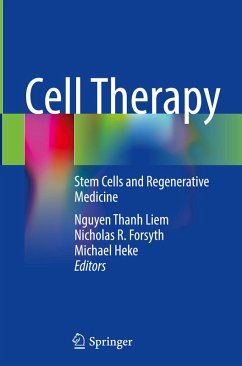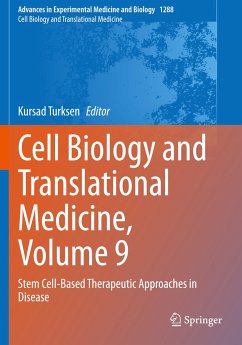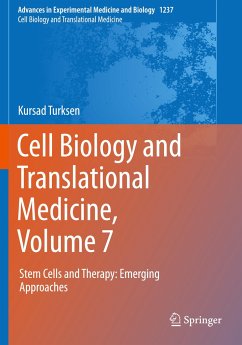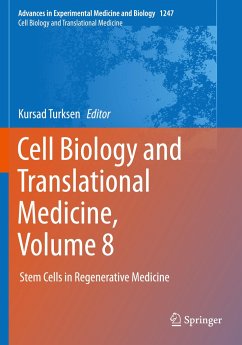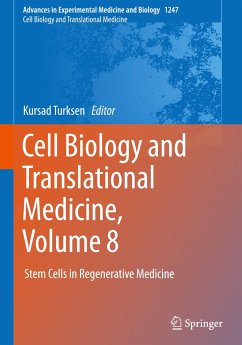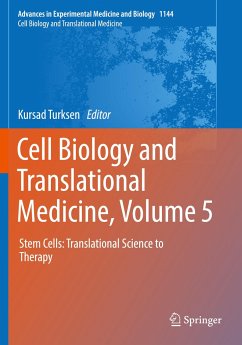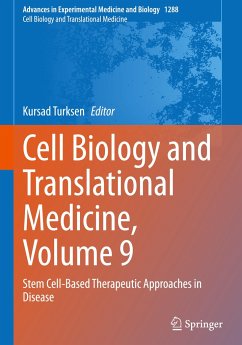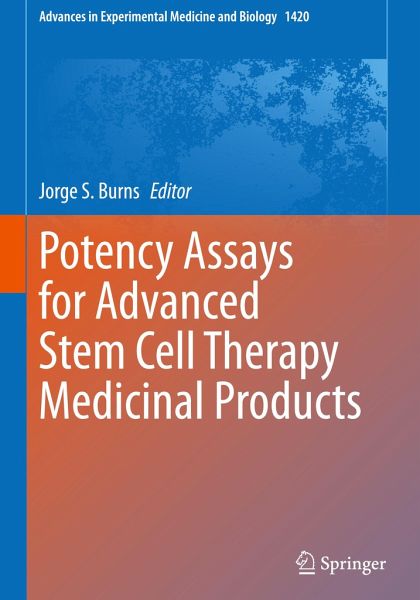
Potency Assays for Advanced Stem Cell Therapy Medicinal Products

PAYBACK Punkte
61 °P sammeln!
This volume of the Springer book series Advances in Experimental Medicine and Biology covers potency assays, one of the most complex yet fundamental evaluations that critically influence stem cell regenerative medicine. Developing potency assays for cell-based medicinal products comes with numerous challenges due to the highly specialised nature of the application and purpose. This book provides the reader with the knowledge necessary to understand issues governing the successful development of potency assays, highlighting an international outlook of how the various challenges raised are being...
This volume of the Springer book series Advances in Experimental Medicine and Biology covers potency assays, one of the most complex yet fundamental evaluations that critically influence stem cell regenerative medicine. Developing potency assays for cell-based medicinal products comes with numerous challenges due to the highly specialised nature of the application and purpose. This book provides the reader with the knowledge necessary to understand issues governing the successful development of potency assays, highlighting an international outlook of how the various challenges raised are being managed. Stakeholders concerned with potency assay development range from patient and clinician to contract research organisations, small and medium enterprise, regulatory authorities and even politicians. The value of potency assays is poised to increase given the inevitable watershed as early-stage clinical trials addressing safety progress to trials testing efficacy. Contributors fromclinical, academic, industrial and regulatory sectors establish a broad point of view for guidance and timely debate. Potency assays require extensive collaboration across disciplines and sectors, as well as compromise and the authors aim to constructively address the many key aspects involved.
Potency assays provide a quantitative measure of the biological activity of advanced therapy medicinal products (ATMPs) and thus are required for their market authorization. As the pace of ATMP development accelerates, the need to develop specific, accurate, and robust potency assays for each product is also accelerating. The volume Potency Assays for Stem Cell Advanced Therapy Medicinal Products presents a broad outlook on the development, quality attributes, and implementation of potency assays for ATMPs. The first few chapters introduce a nuanced historical perspective on the science of potency assay development, describe specific quality attributes of an idealized potencyassay, indicate pitfalls associated with developing such assays for ATMPs, and review guidance recommended by regulatory authorities on assay suitability for product approval. Subsequent chapters highlight efforts to develop potency assays for specific ATMPs, including skeletal stem cells, mesenchymal stromal cells, extracellular vesicles, CAR T-cells, and discuss emerging technologies/platforms for potency assay design. The volume concludes with a chapter reviewing potency assays used for the release of commercial ATMP products, which amalgamates information contained in previous chapters. Overall, the knowledge contributed from leading authorities in both academia and industry is an ideal resource for technicians, scientists, clinicians, process engineers, and regulators working with ATMPs.
-Donald G. Phinney, PhD Professor, Department of Molecular Medicine, Herbert Wertheim UF Scripps Institute for Biomedical Innovation & Technology
Potency assays provide a quantitative measure of the biological activity of advanced therapy medicinal products (ATMPs) and thus are required for their market authorization. As the pace of ATMP development accelerates, the need to develop specific, accurate, and robust potency assays for each product is also accelerating. The volume Potency Assays for Stem Cell Advanced Therapy Medicinal Products presents a broad outlook on the development, quality attributes, and implementation of potency assays for ATMPs. The first few chapters introduce a nuanced historical perspective on the science of potency assay development, describe specific quality attributes of an idealized potencyassay, indicate pitfalls associated with developing such assays for ATMPs, and review guidance recommended by regulatory authorities on assay suitability for product approval. Subsequent chapters highlight efforts to develop potency assays for specific ATMPs, including skeletal stem cells, mesenchymal stromal cells, extracellular vesicles, CAR T-cells, and discuss emerging technologies/platforms for potency assay design. The volume concludes with a chapter reviewing potency assays used for the release of commercial ATMP products, which amalgamates information contained in previous chapters. Overall, the knowledge contributed from leading authorities in both academia and industry is an ideal resource for technicians, scientists, clinicians, process engineers, and regulators working with ATMPs.
-Donald G. Phinney, PhD Professor, Department of Molecular Medicine, Herbert Wertheim UF Scripps Institute for Biomedical Innovation & Technology





